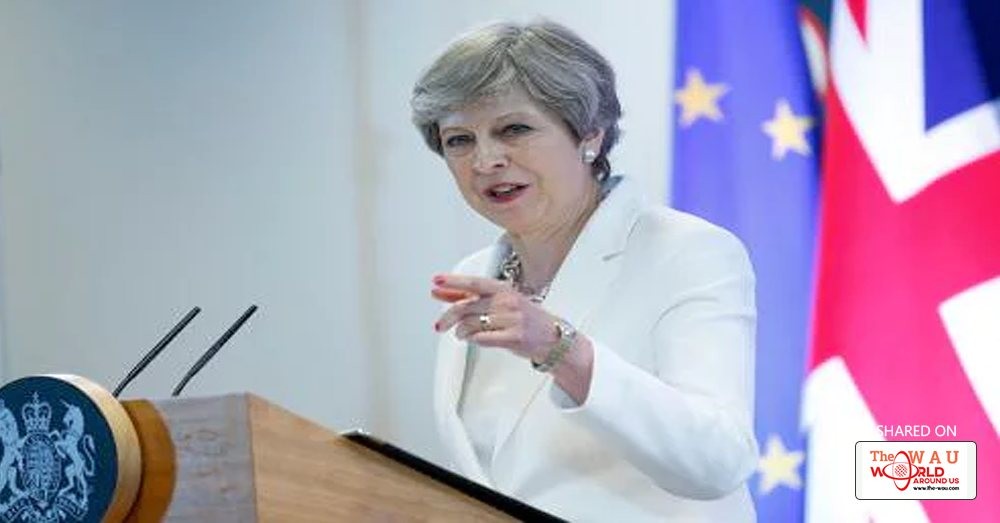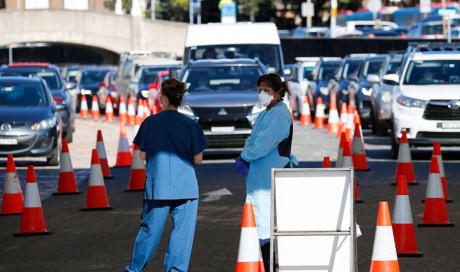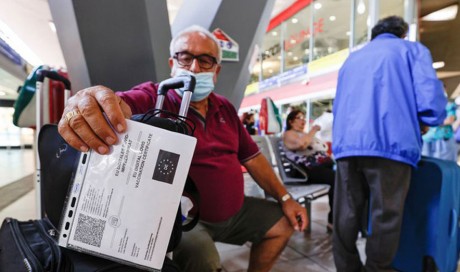Theresa May will say that she wants Europeans living in Britain to qualify for rights that are almost equivalent to British citizens, but she will clash with EU counterparts over the role of the courts.
The prime minister will publish a 15-page document on Monday afternoon setting out plans for EU citizens to achieve “settled status”, with the same residency, employment, health, welfare and pensions rights, after five years in the country.
But her initial offer has already been described as “slightly pathetic” by those representing EU citizens, and her refusal to allow any role for the European court of justice will leave the British government at loggerheads with the EU27.
The EU has already made a proposal to guarantee all British citizens’ rights in the EU and give them the bonus of continued freedom of movement, which will allow them to cross borders to work or to retire in another EU country. Britons who have not moved will be unlikely to have that after Brexit.
The Conservative leader will also demand that “serious and persistent” criminals may be more easily deported than at present as she sets out her plan for how EU citizens living in the UK will qualify for “settled status”.
Her package, which will be published on Monday afternoon alongside a statement to parliament, will be designed to give people who arrived in Britain before an agreed cutoff date the chance of securing their rights.
The Brexit secretary, David Davis, said the aim was to ensure people had rights “almost equivalent to British citizens”. “They get the same residents’ rights, the same employment rights, the same health rights, the same welfare rights, the same pension rights and so on,” he told the BBC’s Andrew Marr. “The only thing they don’t get is the right to vote and they can get that if they become a citizen.”
The date before which EU citizens would need to have arrived in Britain to qualify for the offer would be no earlier than 29 March, 2017, when article 50 was triggered, but could be at the end of the Brexit process, he added.
Those who are in the country ahead of the date will be given the five years to build up to the point at which they can achieve settled status.
They will also have a two-year grace period to prove they arrived before that point.
Asked if anyone would be deported, Davis replied: “I don’t think so, unless they’ve committed a crime or some sort of security problem.”
The Guardian understands that although it won’t be a central demand, officials will make clear that they want to continue to consider deporting serious criminals. Under current rules, it is possible but is considered extremely difficult.
Davis also revealed that he hoped for the continuation of the European health insurance card scheme that allows Europeans to receive treatment for free or at a reduced cost across the European Economic Area. Failure to stick with the current scheme would result in Britain providing “one unilaterally anyway but that’s what we’re looking to,” he said.
Davis said he believed that the question of citizen rights would be quickly resolved, with Britain willing to act unilaterally over the continued indexation of pensions as well. He made clear that any suggestion that Europeans who had already lived in Britain would be “second class citizens” was wrong.
But Davis admitted there was one big sticking point. “The argument now is going to be more about whether the European court of justice (ECJ) has a say and that’s where the fight comes in, that’s where the argument comes in.”
Arguing that the European council had not mentioned the court in its negotiating guidelines, but the commission did in its interpretation, Davis said Britain could accept some arbitration but not under the current system.
“When we’re doing all these deals on trade and other areas, there will be arbitration arrangements. There won’t be the ECJ, there’ll be a mutually agreed chairman and somebody nominated from both sides, is the normal way but there may be other ways too. And it may well be we have an arbitration arrangement over this but it’s not going to be the court of justice.”
However, the EU27 could make the continuing role of the ECJ a red line in discussions, which could delay this early negotiation, which may need to be completed before Britain embarks on trade talks.
Representatives of EU citizens in Britain have branded Theresa May’s offer to guarantee their rights to remain in the country after Brexit pathetic and anything but “fair and serious”.
A group representing Britons in Europe as well as EU citizens in the UK will meet officials in the Department for Exiting the European Union on Friday morning to tell them of their anger with the prime minister’s “spin” on the issue when she spoke at a dinner in Brussels.
May made what she described as a “fair and generous” offer after a meal at the European council summit on Thursday.
But it was met with fury by EU citizens who say it increases rather than eases anxiety, particularly because, they claim, it is cast in the “language of immigration law” rather than existing EU law.
They say the offer is also damaging for Britons in Europe to whom, a fortnight ago, the EU offered a lifetime guarantee of all their current rights, something that the British team in Brussels failed to acknowledge on Thursday night, instead talking of how the UK’s offer was only on the table if it was reciprocated by the EU.
“There is something slightly pathetic about the prime minister’s proposal which makes no reference to the detailed, comprehensive offer tabled by the EU. The prime minister described her proposal as fair and serious. It’s neither fair nor serious,” said Nicolas Hatton, the founder of the grassroots group the3million, which has been campaigning for the rights of those settled in the UK since the referendum last year.
Share This Post















